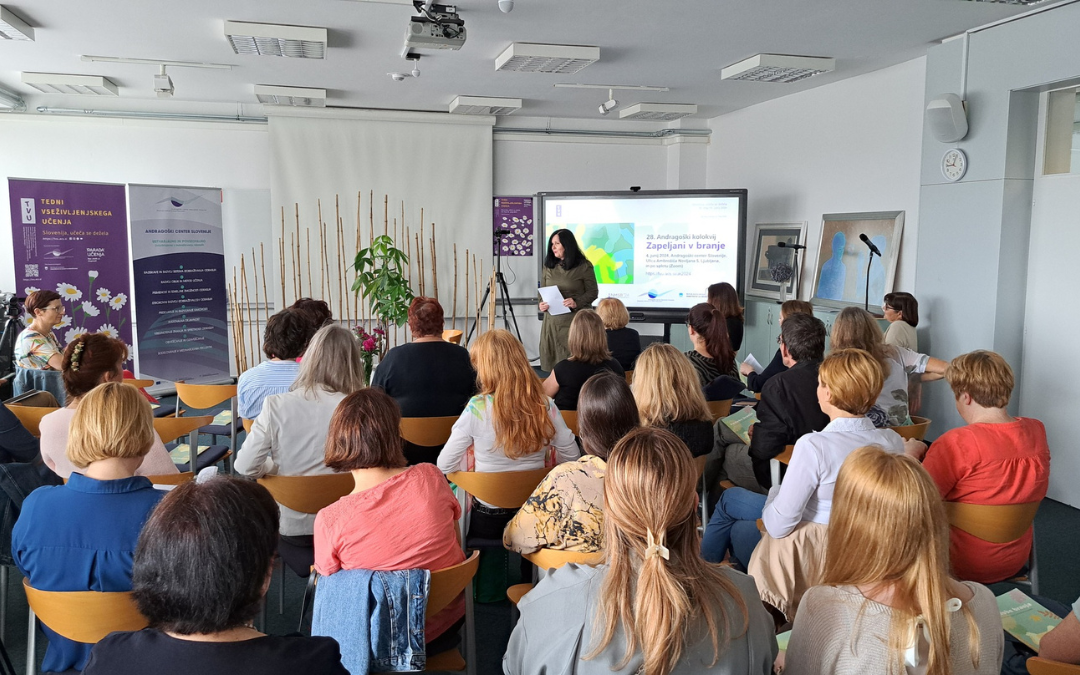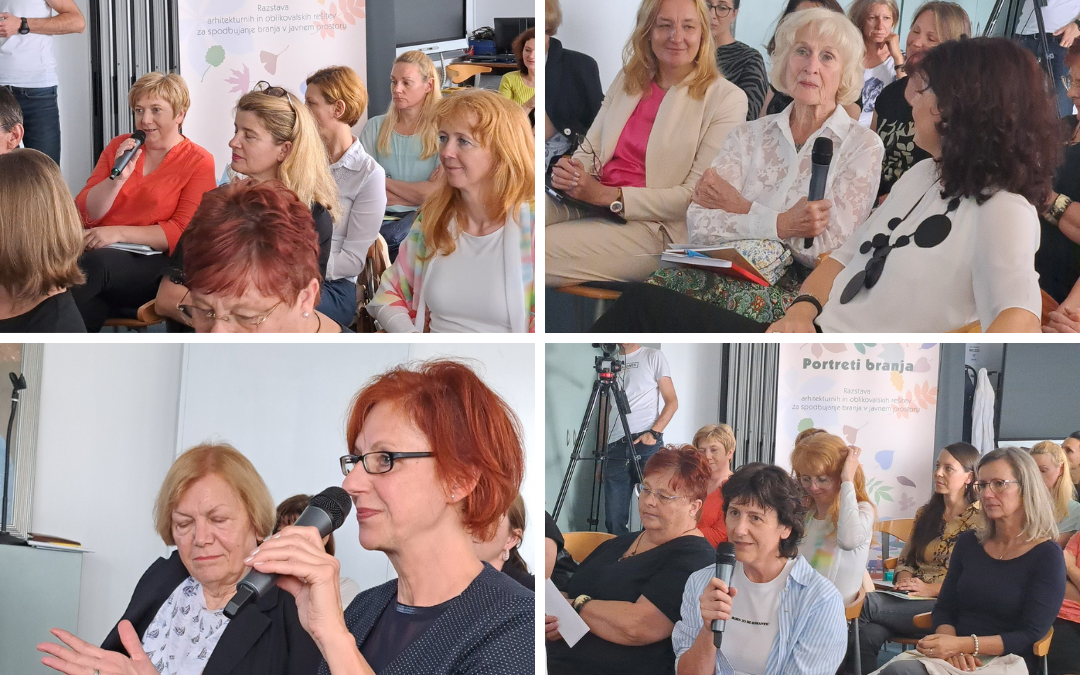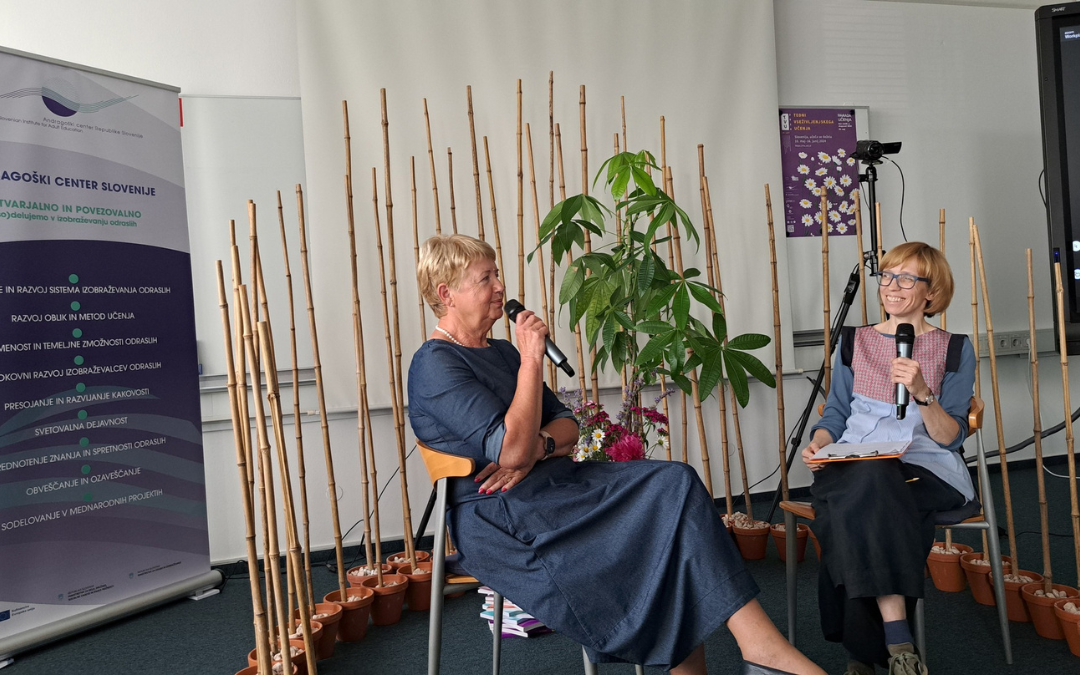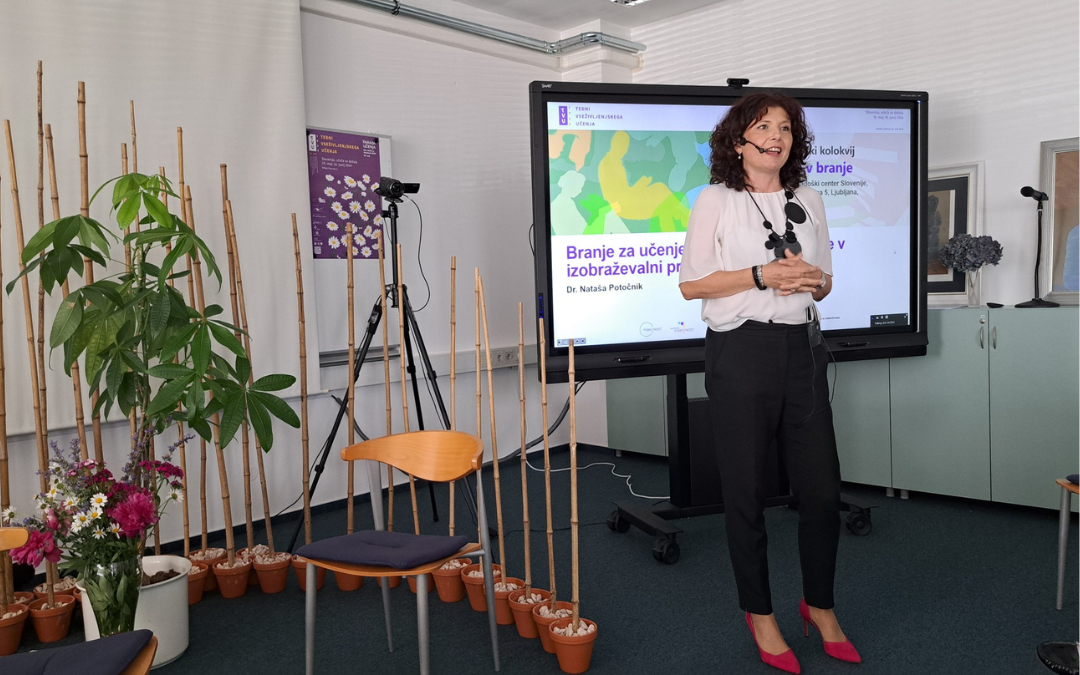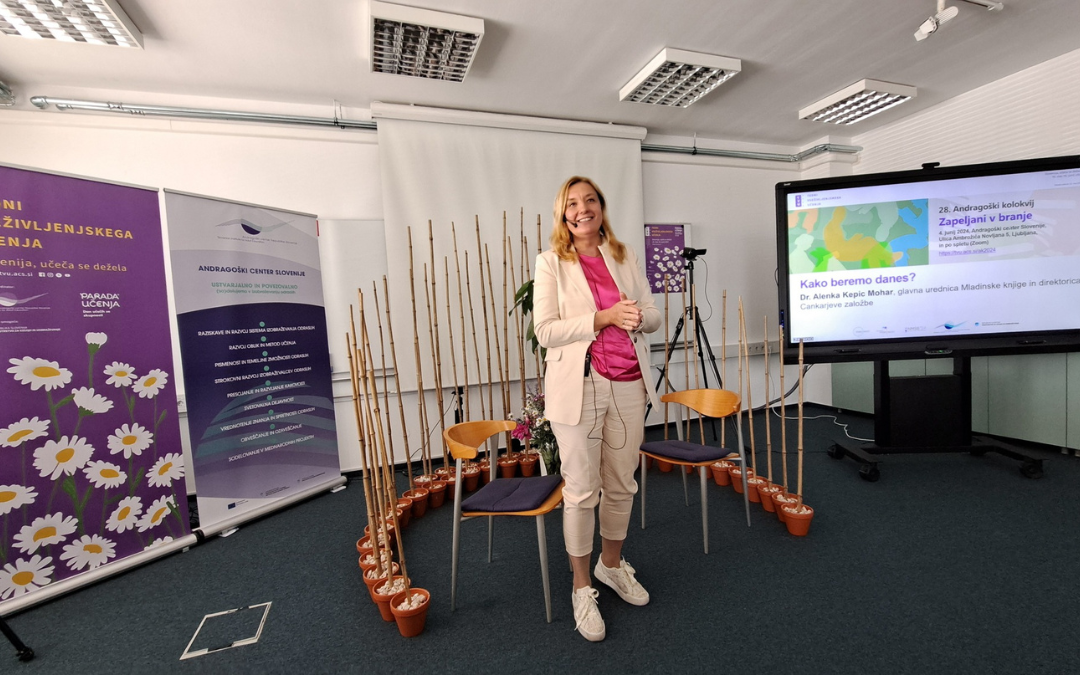Reading is an important source of satisfaction and health
These goals are closely linked to the work of adult educators. Therefore, at the SIAE, we have been focusing on the Action Plan resulting from the National strategy for the development of reading literacy in the period 2019–2030 (both in Slovenian), and development activities for many years. We have worked in this field with even greater intensity since the establishment of the National Council for Reading Literacy in 2021. We aim to raise awareness, give meaning and strengthen the need for reading, thus enhancing the culture of reading among adults. With the task of promoting a culture of reading in mind, this year’s Adult Education Colloquium was also designed as another event that addressed the creativity and engagement of adult educators. According to the 2016 PIAAC survey, the reading culture among adults in Slovenia is poor, with almost every second Slovenian not reading a single book in a year. This is nearly half of the adult population.
Reading is Personal
Exploring the phenomenon of reading
Dr Vogrinčič Čepič uses the method of reading discussion in her exploration of the phenomenon of reading, to which she is scientifically devoted. According to her experience, a relationship that transcends the discourse of a mere research interview is invariably established between interlocutors. In this relationship, the researcher is no longer understood as an omniscient interviewer, nor is the respondent merely a source of data. It involves a mutual exchange of experiences and perspectives, with the main focus naturally on the interviewee, who is perceived as an active interlocutor. Precious are the questions around which interlocutors share their experiences and views on reading.
Reading in the educational process
The method of deep reading, which includes critical reading (reading with comprehension, reading with anticipation and evaluation), was demonstrated in the second part of the colloquium by Dr Nataša Potočnik, Director of the SIAE, an expert in the field of reading and a member of the National Council for Reading Literacy. As scientific findings show, we tend to read superficially online – skimming over text, which generally serves us well when searching for information. In contrast, we engage in deep reading on paper and modern e-readers. In an interactive one-hour workshop, participants experienced through a guided activity how dialogical, creative and, at the same time, enjoyable deep reading can be within the educational process. This is undoubtedly the best way to incorporate similar approaches into our own ALE practices.
Enticing people to read
Dr Alenka Kepic Mohar, Editor-in-Chief at Mladinska knjiga and Director of Cankarjeva založba publishing house, spoke about how we read today. In an exciting presentation based on objective data, she highlighted various trends and changes in the reading habits of the Slovenian and global communities. The fact that almost half of the adult population in Slovenia does not read a single book in a year, combined with the decline in book purchases, especially in Slovenian, raises several questions related to the originality and development of the Slovenian language.
The list of most-read authors is also changing, with a noticeable trend towards the most favoured authors being those who people can also follow on various social networks. While there may be reservations about the presented list, it also confirms that enticing people into reading is fundamentally based on interpersonal relationships, which are easier to establish if you know something about someone. This is somewhat consistent with the findings of Dr Ana Vogrinčič Čepič.
If we establish a respectful relationship with another person, we can talk to them about reading. We will be interested in how and what they read, but above all, how they think. Reading as a subject of conversation and shared reflection, including dialogical reading, is an activity that connects people and continually helps them redefine the world in which they live while also guiding them towards collaborating in finding solutions to common problems.
The event was hybrid, and the recording (in Slovenian) is available on the website of the Adult Education Colloquium.
Natalija Žalec, MAEd(UK) (natalija.zalec@acs.si), SIAE

